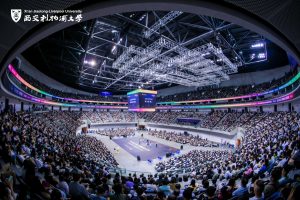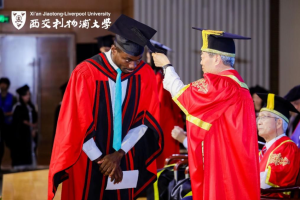17 Sep 2025
When artificial intelligence (AI) can help you retrieve literature, support your research, and even act as a “super assistant”, university education is undergoing a profound transformation.
On 9 September, XJTLU’s Centre for Knowledge and Information (CKI) hosted its third AI Learning Day, themed “AI-Empowered, Ecosystem-Co-created”. The event showcased the latest milestones of the University’s “Education + AI” strategy and offered in-depth discussions on the role of AI in higher education.
In her opening remarks, Professor Qiuling Chao, Vice President of XJTLU, said: “AI offers us an opportunity to rethink education, helping us create a learning environment that is fairer, more efficient and more personalised. I hope today’s event will inspire everyone to explore how AI technologies can be applied in your own practice.”
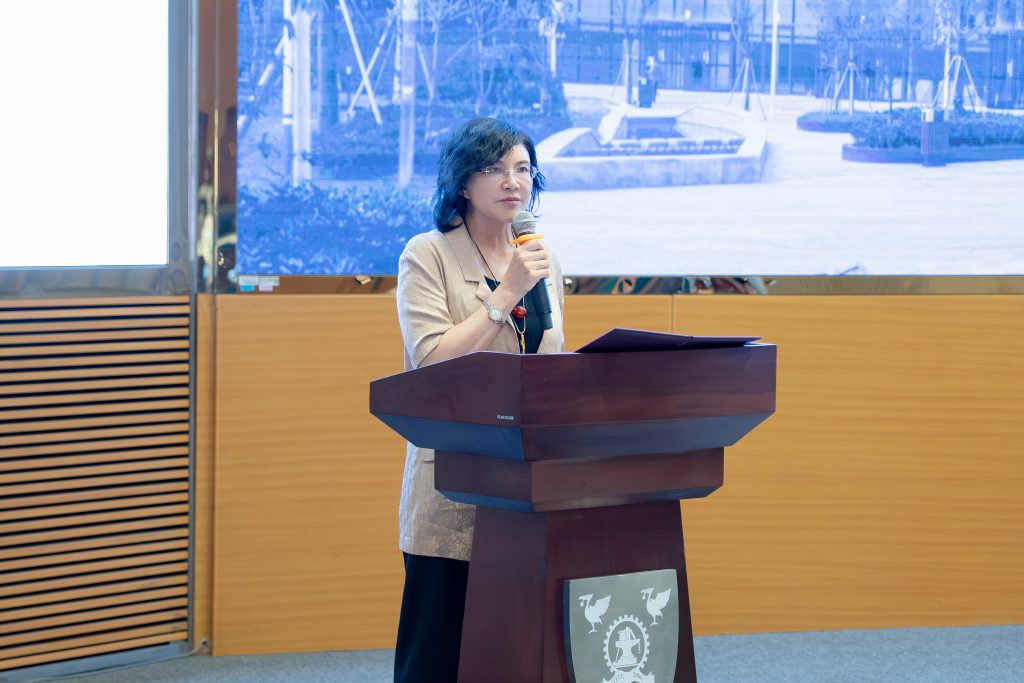
Professor Qiuling Chao
In his keynote speech, Professor Youmin Xi, Executive President of XJTLU, elaborated on the University’s vision for future universities. He stressed that future universities would evolve into human-AI symbiotic ecosystems, where learning would be centred on project-based co-creation and human-AI collaboration. The role of educators, he noted, would shift from transmitters of knowledge to mentors for both learning and life.
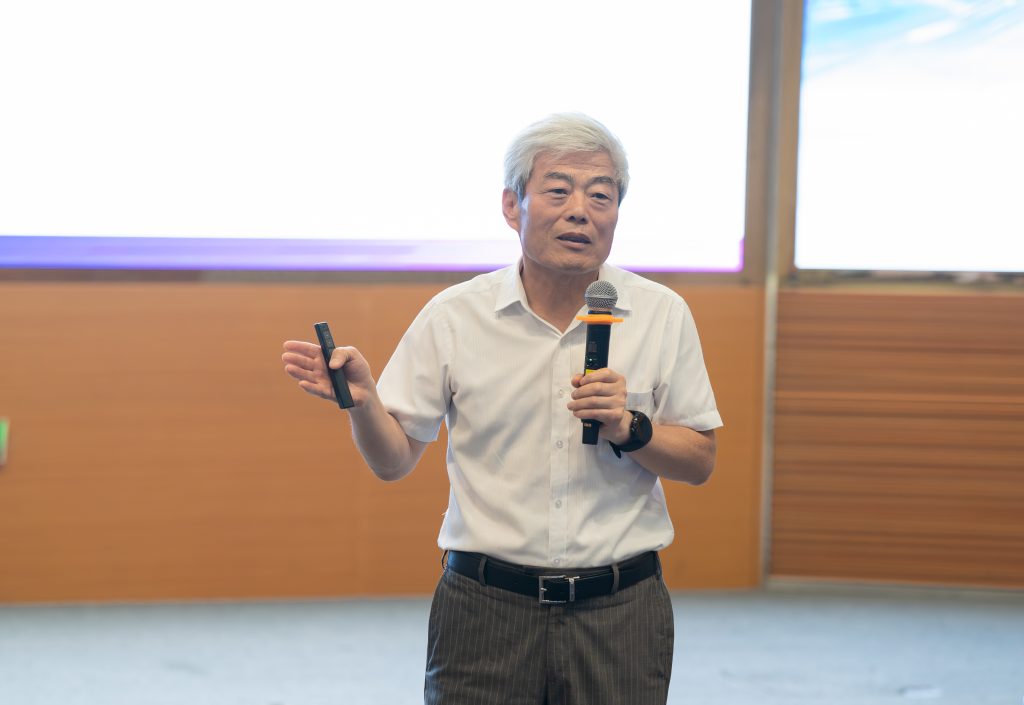
Professor Youmin Xi
At the event, Professor Xi’s digital twin, created by the XJTLU Virtual Engineering Centre in collaboration with the team led by Qilei Sun from the Academy of Artificial Intelligence, delivered Teachers’ Day greetings to all staff.
(Teachers’ Day message from President Xi’s digital twin)
“Education + AI” in diverse scenarios
This event also highlighted four case studies from different areas of the University. Dr Ling Xia from the Global Cultures and Languages Hub suggested that in the AI era, curricula should undergo de-skilling (assigning repetitive tasks to AI), re-skilling, and up-skilling, thereby enabling students to focus on in-depth learning in critical thinking and research methodologies.
Dr Xiangyun Lu from International Business School Suzhou (IBSS) demonstrated how AI teaching assistants and the University’s Junmou AI platform can offer students a customised and highly interactive learning experience, particularly for those facing challenges such as information overload and language barriers.
Dr Juan Li from the School of Science shared the concept of the "AI amplifier" for research. She explained that the "double amplifier" effect works in two stages: AI first amplifies students' efficiency by automating tasks like literature searches and coding. These empowered students then become the second amplifier, freeing mentors from routine work so they can focus on high-level strategy. This human-AI partnership allows a small research team to achieve the output of a much larger one.
Jing Wang, Deputy Director of the XJTLU Learning Mall, showed how AI agents are already being used to support scheduling, meeting bookings, news updates and other administrative and learning tasks. She also announced that from this semester, all students would have access to the XIPU AI Agent platform.
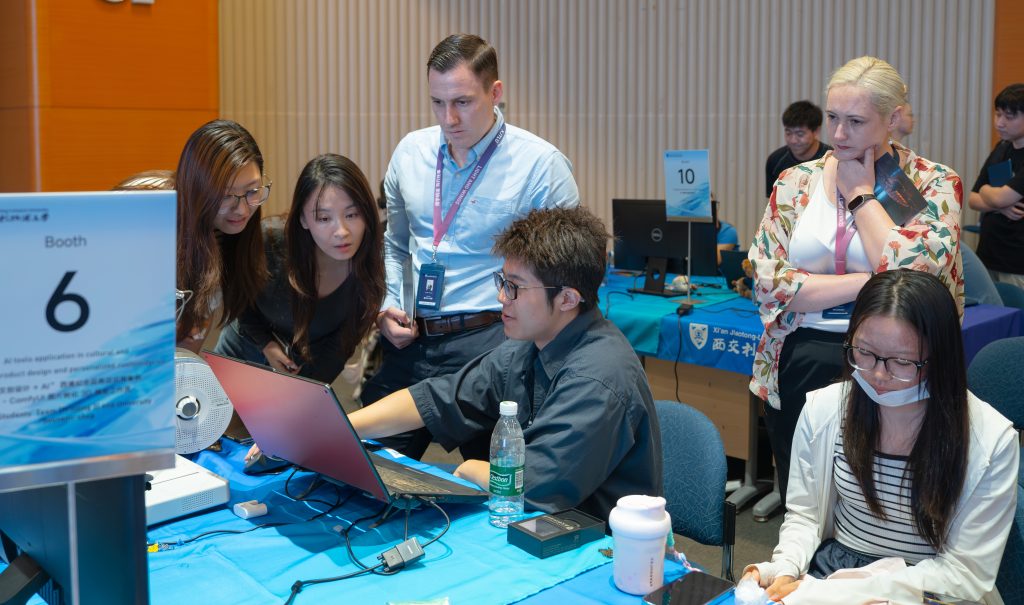
Students and teachers are having a discussion at one of the booths
AI education system co-created by staff and students
The event’s AI interactive zone also drew significant attention from students and staff. From the Junmou AI platform to the E
-Support chatbot, and from AI-assisted creative design to 3D printing, 10 exhibition booths demonstrated the integration of AI across campus life.
These innovative applications sparked lively discussions and thoughtful reflections among participants. In an interview, Thomas Durham from IBSS noted that, although he had rarely used AI before, the event was highly inspiring and motivated him to explore its use in both professional and personal life. He also shared his perspective on AI's role in learning, stating: “My expectation for the future of AI in education is that it should help students think critically. My worry is that AI’s convenience and efficiency might make students’ understanding too superficial, since AI does much of the hard work for them. Hopefully, critical thinking will still be preserved.”
Year One student Zifei Xu was particularly inspired by the interdisciplinary collaboration on display at the event, remarking that it offered her a glimpse of a more holistic and future-focused education.
Dr Xin Bi, XJTLU’s Chief Officer of Data and Director of the CKI, noted that, supported by robust digital infrastructure such as the Junmou AI platform, more than 26,000 students and 2,400 staff are already using the University’s AI platforms. XJTLU’s digital transformation is advancing from informatisation and digitisation towards intelligentisation, with AI expected to empower teaching, research and administration, and to help staff and students leap from knowledge to wisdom.
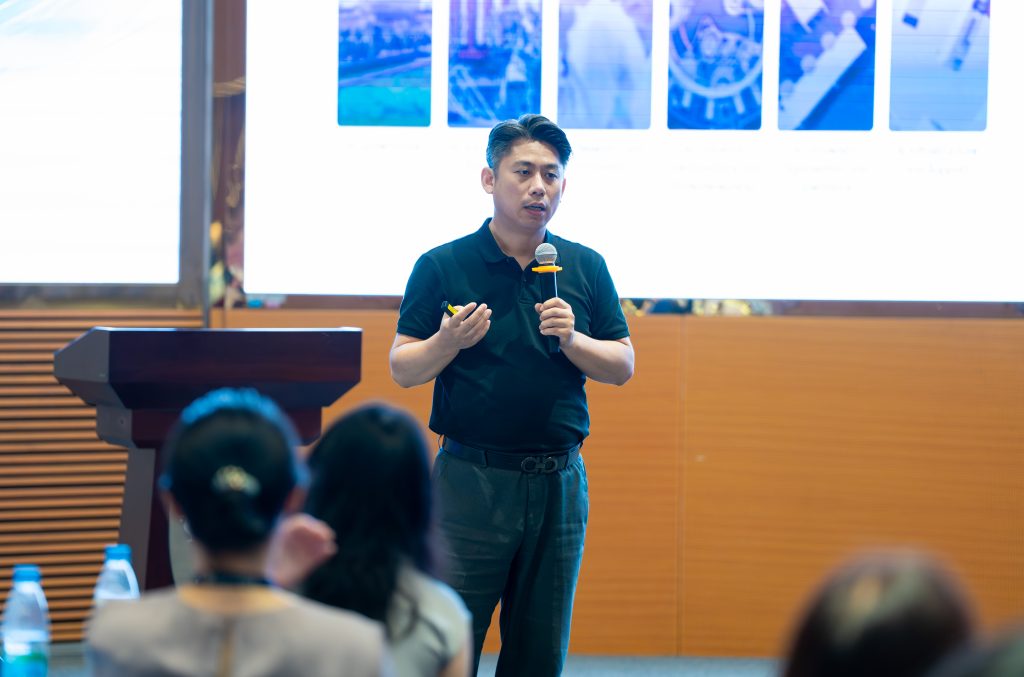
Dr Xin Bi
“Looking ahead, we will continue to advance the deep integration of AI in education, research, administration and services, building a data-driven intelligent operations centre and fostering a sustainable AI learning ecosystem,” said Dr Xin Bi.
By Qinru Liu
Edited by Patricia Pieterse
Translated by Xiangyin Han
17 Sep 2025
